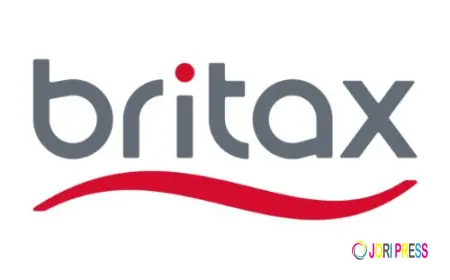Family Offices Market 2030 Emerging Opportunities
The primary driver behind the expansion of the Family Offices Market is the increasing wealth of high-net-worth individuals (HNWIs) and ultra-high-net-worth individuals (UHNWIs).

Introduction
The Global Family Offices Market, estimated at USD 19.03 billion in 2024 and projected to reach USD 27.61 billion by 2030 (CAGR 6.46%), continues to evolve as a paramount model for ultra‑wealthy individuals’ wealth stewardship through multi‑generational planning, bespoke investment portfolios, and legacy services. This sector has expanded significantly over the past decade as HNWIs/UHNWIs increasingly demand highly tailored, confidential, and strategic wealth management beyond what traditional private banks can offer.
Industry Key Highlights
- Market Size & Growth – From USD 19.03 B in 2024 to USD 27.61 B by 2030, representing a 6.46% CAGR.
- Rising HNWIs/UHNWIs – Accelerated wealth creation, especially across Asia Pacific, fuels demand for dedicated family offices.
- Alternative Investment Focus – Increased allocation toward private equity, real estate, hedge funds, and commodities.
- Virtual Family Office (VFO) Surge – Leaner, tech‑driven models offering flexibility and lower cost structures.
- Asia Pacific Lead – Rapid growth in APAC—particularly China, India, and Japan—is reshaping global demand patterns.
- Tech & AI Integration – Adoption of big data analytics, AI, and blockchain to enhance portfolio insights and operational efficiency.
- Estate & Legacy Planning – Demand for succession strategies and generational transfer rises exponentially.
- Customization & Privacy – Distinct from mass-market wealth managers; high emphasis on confidentiality and bespoke advisory services.
- Competition Intensifies – Traditional private banks, multi‑family offices, and new fintech entrants vie for market share.
- Regulatory Complexity – Cross-border tax, compliance, and fiduciary rules require sophisticated support.
Download Free Sample Report: https://www.techsciresearch.com/sample-report.aspx?cid=27097
Emerging Trends
Emphasis on Virtual Family Offices (VFOs)
Virtual or remote family offices, powered by digital platforms, are disrupting the legacy single- or multi‑family office model. Clients now expect access to investment management, tax optimization, estate planning, and reporting from anywhere in the world—delivered through cloud-based dashboards and AI-powered advisory tools. VFOs deliver comparable service quality with minimal physical infrastructure, making them ideal for mobile ultra‑wealthy families or those in newly affluent markets.
Alternative Asset Thrust
In pursuit of alpha in a low-yield environment, family offices are aggressively expanding into alternative investments such as private equity, venture capital, real estate projects, commodities, and impact-focused funds. These segments offer diversification beyond traditional equities and bonds and are central to higher-return, long-duration strategies.
Digital Transformation & AI
Advanced technologies are transforming how family offices operate. AI-driven analytics enable better risk-adjusted portfolio construction, predictive wealth forecasting, and tax optimization. Blockchain offers secure transaction settlements and immutable recordkeeping, while machine learning improves early detection of financial anomalies, enabling proactive risk mitigation.
Sustainability & ESG Integration
Environmental, Social, and Governance (ESG) considerations are becoming mainstream within family office portfolios. Many ultra‑wealthy families now prioritize sustainable impact investing—selecting private equity or real estate deals aligned with ESG metrics to safeguard returns while supporting philanthropic legacies.
Key Drivers
Growing Wealth Base
The global rise of HNWIs and UHNWIs—especially in developing economies—creates an expanding client base for family offices. As wealth becomes more complex, a preference for full-scope, bespoke advisory over standard banking services grows.
Demand for Personalized Wealth Management
Wealthy families no longer seek off‑the‑shelf financial products. They demand tailor-made strategies encompassing cross-generational planning, tax optimization across jurisdictions, curated impact investments, art and philanthropic counsel, and legacy structuring.
Regulatory Pressures & Compliance Needs
Stringent cross-border compliance, tax planning, and governance requirements compel wealthy families to retain professional advisory support. Family offices provide integrated counsel that navigates succession planning, property holdings in various countries, wealth transfer strategies, and regulatory reporting.
Succession & Legacy Planning
As wealth transfers from founders to younger generations, maintaining control, value continuity, and family harmony has become a top priority. Family offices offer structured frameworks for governance, wealth distribution, and education of next-gen members.
Competitive Analysis
Family Office Models
- Single Family Offices (SFOs): Built for one family, high customizability, high cost.
- Multi-Family Offices (MFOs): Serve multiple clients to spread costs, retain personalized service.
- Virtual Family Offices (VFOs): Flexible, tech-first, scalable solutions appealing to digital-native wealthy families.
Top Global Players
- Bessemer Trust and JPMorgan Private Family Office offer high-touch traditional services.
- Stonehage Fleming Group, Glenmede Trust, and Cascade Asset Management excel in cross-border planning.
- MSD Capital and Emerson Collective highlight how family offices evolve into impact-driven investment vehicles.
Barriers to Entry & Innovation
Entry is limited by barriers like talent availability, infrastructure investment, and regulatory knowledge. However, digital-first entrants and fintech platforms are lowering these barriers, offering modular advisory and DIY financial options for newer wealthy families.
Future Outlook
Looking ahead, several structural shifts are likely to shape the Family Offices Market through 2030:
- Asia Pacific Emergence: APAC is projected to eclipse other regions in growth, with burgeoning numbers of HNWIs seeking local family office setups.
- Hybrid Models: Many families may adopt hybrid models—maintaining a small in‑house SFO team while outsourcing functions or leveraging virtual platforms.
- Alternative Assets Dominate: Direct investment in tech, real estate, renewables, and private debt will increasingly define portfolios.
- Tech-led Operational Backbone: Digital infrastructure, AI-enabled advisory, and blockchain trust frameworks will underpin scaling.
- Greater ESG & Impact Focus: The next generation of UHNWIs will demand investments that deliver financial returns and positive societal impact.
10 Benefits of the Research Report
- Comprehensive Market Sizing – Validates valuation (USD 19.03 B in 2024, USD 27.61 B by 2030).
- Growth Trajectory & Forecast – 6.46% CAGR level insight and segmentation across product types and geographies.
- Segmentation by Family Office Type – Clear breakdown into SFO, MFO, and VFO dynamics.
- Regional Insights – Highlights Asia Pacific as top growth region with granular country-level drivers.
- Asset Class Analysis – Visibility into evolving weight of alternatives vs traditional assets.
- Competitive Landscape – Major players benchmarked with strengths and strategic positioning.
- Trend Deep‑Dive – Coverage of trends like ESG investing, digital transformation, virtual office adoption.
- Regulatory & Succession Planning Guidance – Key for families navigating complex wealth transfer and global compliance.
- Tailored to Stakeholders – CEOs, investors, family enterprise boards can use it for strategy and decision-making.
- Customization Offer – Report purchasers can request 10% report customization to fit unique client context or regional requirements.
Emerging Trends & Drivers
Boutique Wealth Platforms Rise
A surge in boutique, digitally native firms is offering plug‑and‑play family office services, especially attractive for newly HNW families who may not require full-scale SFO setups. These platforms often combine investment advisory, philanthropy management, and digital dashboard access in package models.
Generational Shift in Priorities
Younger family members are increasingly influencing investment strategy, demanding eco-conscious, transparent, tech-enabled wealth solutions. The emphasis is shifting toward sustainability, impact investing, and flexible reporting formats.
Ecosystem Integration
Family offices are extending beyond finance into venture incubation, philanthropy ecosystems, and operational ventures—functioning as family-dedicated holding structures. This integration fosters strategic alignment across legacy, investment, and operational domains.
Competitive Analysis – Expanded
Traditional Family Offices
Firms such as Bessemer Trust and JPMorgan Private focus on multi‑asset portfolios, consolidated reporting, tax optimization, legal advisory, and access to proprietary investment products. They maintain established relationships with HNW families across generations.
Tech-Savvy New Entrants
Emerging platforms like Bespoke Wealth Management blend fintech capabilities with fractional advisory, appealing to younger, mobile clients. They may offer custom reporting via API, AI-based risk analysis, and access to curated alternative strategies at scale.
Strategic Collaborators
Banks and wealth divisions (e.g. UBS, Credit Agricole) are collaborating with boutique family office firms or launching multi-family desks to retain high-asset clients within their broader ecosystem.
SWOT Summary
- Strengths: Depth of legacy service, strong client trust, integrated advisory.
- Weaknesses: High cost structures, slower innovation, limited flexibility for clients.
- Opportunities: Startup models, APAC growth, ESG-fueled strategies.
- Threats: Digital disruptors, regulatory shifts, next-gen family preference for modular advisory.
Future Outlook – Expanded
By 2030, the market is expected to evolve as follows:
- Modular & Layered Models Thrive – Families may mix proprietary staffing with outsourced/virtual capabilities to optimize costs and flexibility.
- ESG Becomes Table Stake – Impact reporting, sustainability benchmarks, and ethical investing will be central to most portfolios.
- Data-Driven Decision Making – Real-time dashboards, scenario modelling, and predictive analytics will become standard tools.
- Cross-Border Family Governance – As families span geographies, governance hubs that integrate legal, tax, and generational coordination will rise.
- Talent and Advisory Ecosystems Expand – Advisory firms, legal advisors, family governance consultants, and tech solution providers will collaborate to service integrated needs.
Competitive Landscape – Final Thoughts
Traditional SFO providers remain valuable for ultra-wealthy families that require full control, privacy, and custom strategies—but face increasing pressure from nimble, tech-enabled firms that offer VFO-based services at a lower cost and greater accessibility. Multi‑family offices offer economies of scale and broader resource access, while hybrid models and virtual platforms add flexibility.
Major global players will need to continue scaling digital capabilities, ESG integration, generational engagement, and alternative investment access to stay competitive. Meanwhile, boutique firms must build reputations for reliability, regulatory compliance, and performance to earn trust in a traditionally relationship-driven market.
Final Word
The Family Offices Market stands at the intersection of wealth, legacy, technology, and innovation. Its expansion from USD 19 billion in 2024 to nearly USD 28 billion by 2030 is fueled by wealth concentration, demand for bespoke services, and digital transformation. Emerging models—especially Virtual Family Offices—are democratizing access to elite advisory for newly affluent families. Asia Pacific propels growth, alternative investments reshape portfolios, and ESG consciousness defines next-gen expectations.
For investors, advisors, family businesses, and financial institutions alike, understanding these trends, competitive dynamics, and regional nuances will be crucial in capitalizing on the opportunities this sector offers. TechSci Research’s comprehensive report serves as a strategic tool for decision-makers navigating this complex and evolving domain.
Contact Us-
Mr. Ken Mathews
708 Third Avenue,
Manhattan, NY,
New York – 10017
Tel: +1-646-360-1656
Email: [email protected]
Website: www.techsciresearch.com
What's Your Reaction?
 Like
0
Like
0
 Dislike
0
Dislike
0
 Love
0
Love
0
 Funny
0
Funny
0
 Angry
0
Angry
0
 Sad
0
Sad
0
 Wow
0
Wow
0

















































